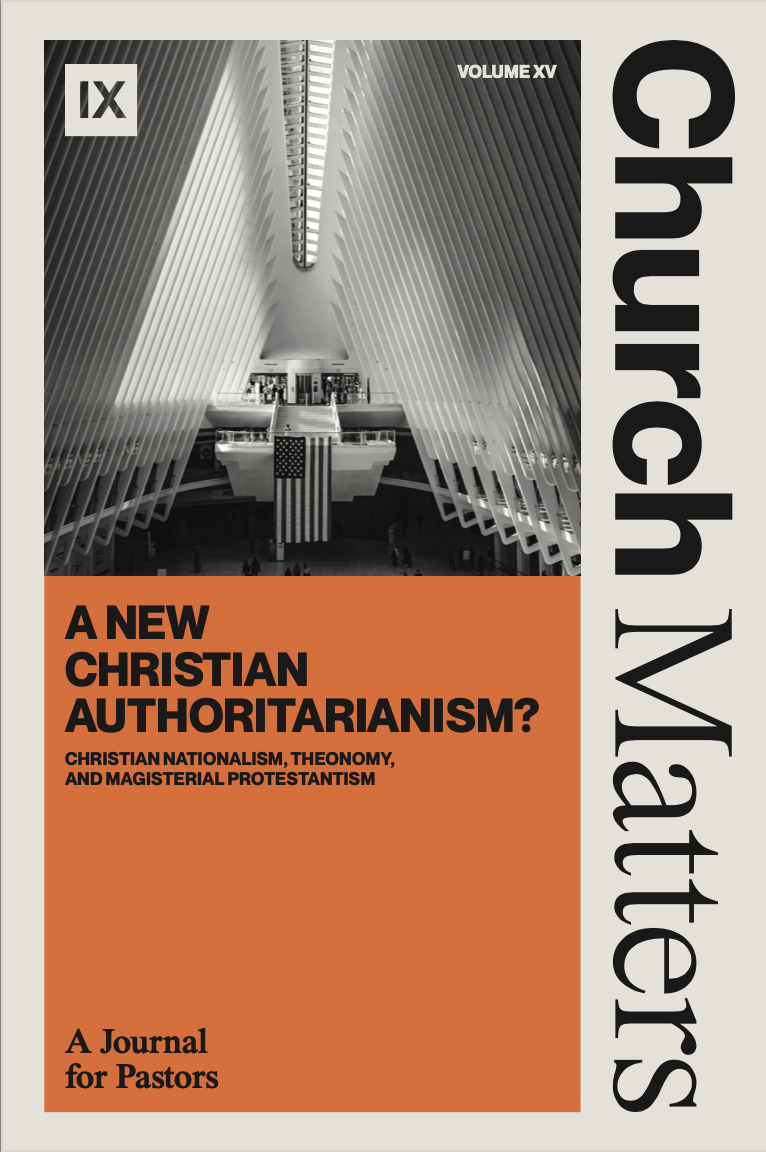Government’s Two-Edged Sword
There’s a debate raging among Christians about the proper role of government in enforcing biblical morality. You’ve likely encountered this debate in one of its various forms. Sometimes it’s framed in terms of “Christian nationalism.” Other times you might hear a reference to “common good” conservatism. David French defends “liberal democratic order,” while others are “post-liberal.” There’s Roman Catholic “integralism” and its cousin, “magisterial Protestantism.” All these terms and phrases are circling the same question: to what extent should the government use its coercive power to enforce Christian ethics?
The argument for a more aggressive governmental role in regulating morality is seemingly straightforward. In its most simplistic form, the syllogism goes something like this: Scripture tells us certain conduct is evil, the government’s role is to restrain evil (Romans 13), thus the government should prohibit that evil conduct. In recent months, I’ve encountered highly educated and undoubtedly sincere Christians arguing for the criminalization of blasphemy, profanity, and speech promoting an unbiblical sexual ethic.
As a Christian, I understand the alarm that my fellow believers feel as we find ourselves increasingly out-of-step with a culture that seems ever more hostile toward us. We are pilgrims, not pioneers. I also understand the critique of the claim that the government can be truly neutral on matters of morality. As my good friend Jonathan Leeman has said, “Behind every [law] . . . is someone’s basic worldview of how things ought to be. And behind that worldview is a god.”
At the same time, I think this newfound faith in a more muscular government, particularly when it comes to punishing and restraining speech, is misguided. John Leland, a Baptist minister during America’s earliest years who was instrumental in the adoption of the First Amendment’s religion clauses, argued that “government should protect every man in thinking and speaking freely.” I share that view, for at least three related reasons.
First, the more expansive vision of government being advocated by some Christians today fails sufficiently to account for universal fallenness. Because, as a Christian, I believe that all men and women are corrupted by sin, any theory of government must include a mechanism to restrain and punish government actors when they act unjustly. Irenaeus of Lyon made this point in Against Heresies where he argued that justice requires that, when government magistrates act “to the subversion of justice,” then “they shall also perish.”
It’s this universal fallenness that makes me exceedingly concerned when, for example, Christians call for governmental restraints on speech they find repugnant. Short of violent revolt, speech is the citizen’s last line of defense against corrupt public officials. A theory of government that grants to government the power to punish speech is a theory of government that unjustifiably assumes the nobility of those who hold government office and a-historically assumes that fallen men and women, given the power to punish speech, will not wield that power to suppress criticism of them. In a fallen world, it is critical that the principle of free speech be maintained, not because of optimism that fallen citizens will always use that freedom in an honorable way, but to protect against the reality that fallen government actors will use the power to punish speech to quell critique of their dishonor.
Second, running throughout Scripture is a proportionate limitation on the government’s authority to punish wayward citizens and subjects. For some moral wrongs, the sword of the state is a disproportionate response. Human government has not been divinely authorized to punish every wrong by means of the physical force that is the essence of government. Many wrongs can and should be addressed in much less serious ways to ensure the response is proportional to the offense. A just society must rightly distinguish right from wrong, but a just society must also rightly distinguish the seriousness of wrongs. Some wrongs demand government intervention; others demand government passivity, which brings me to my last point.
Third, government is not the only institution ordained by Scripture to restrain evil. What makes government unique in Scripture is its authority to use physical force to respond to evil. As Max Weber, one of the fathers of modern sociology, would later write, the government has the monopoly on the legitimate use of physical violence. Romans 13 teaches the same thing. But though God has conferred on government alone the authority to use physical force against evil, he has ordained a variety of social institutions that can more effectively and proportionately respond to some wrongs.
To take the speech example, it is certainly true that some types of speech harm society. And the right to speak is not without limits. To take one well-worn example, one cannot prompt a deadly stampede in a crowded theatre with a false claim of fire. And the government can (in some circumstances) limit what people speaking on the government’s behalf say. But, as I noted earlier, empowering the government to punish speech by private actors is empowering the government to suppress speech seeking to hold the government accountable. It is unnecessary to give the government this dangerous power because, in God’s providence, there are other social institutions and mechanisms available to deal with harmful speech. Churches can preach against it. Schools can teach against it. Parents can shield their children from it. Social circles can shame those who participate in it. And even government can speak in opposition to it. But not every wrong merits a coercive government response, particularly in light of the existence of these other institutions. In most instances, less coercive responses by institutions other than the state are far more proportional to the harm.
The evils evident in our society are rightly concerning to the Christian. But any Christian theory of government must recognize that, time and time again across the ages, the government has itself been an instrument of evil rather than good. The challenge in a fallen world is to identify a role for government to, alongside other God-given institutions, restrain evil while at the same time establishing robust means to check the evil of government.
None of this is simple, as history has taught us. As Leland put it, “To give power enough to men to do good, and yet to have it so counterpoised, that they can do no harm, is a line so difficult to be drawn, that it has never yet been done.” The continuing struggle for just government in this world will always fall short, but that struggle points us to a day when the Only Just Judge will come again in glory to establish the perfect kingdom that will have no end. Maranatha.
* * * * *
Editor’s note: this article was originally published by Providence Magazine and republished with their permission.









